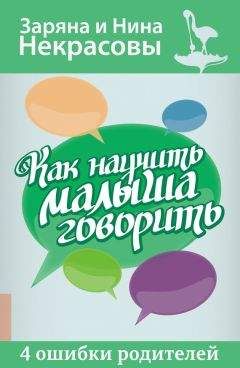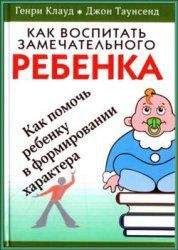Leo Frankowski - CONRADS QUEST FOR RUBBER
But it would have been extremely difficult for us in mostly landlocked Poland to use them, for while the ships could have been built easily enough, having the skills to sail them was another matter entirely.
In the old British navy it was reckoned that a boy had to start learning aboard ship before he was twelve years old if he was ever to master his craft, and even that assumed that older, experienced men would be around to teach it to him.
Getting from place to place while taking into account the winds, the tides, and the ocean currents, not to mention storms and all the other hazards of the sea, was no easy task, and often the very best of men were not up to it. In the early days of long voyaging, three ships out of four failed to return home, and in the fifteenth century, Portugal was almost denuded of men because of the horrendous losses at sea.
But a steamship was actually much easier to operate than one of the old square riggers. You didn't have to worry much about wind and tides. You just fired up the boiler and pointed it in the direction you wanted to go. It took many years to train a good topman, but you could teach a steam mechanic his trade in a year. Large numbers of men were needed to handle large sails, while only a few could keep a steam engine going.
And the bigger the ship, the less you have to worry about storms. There are limits as to how big you can make a wooden sailing ship, but those same limits don't apply when you are building out of steel.
Well, we didn't have our steel industry to the point where we could roll the thick plates necessary for shipping, but in the course of building hundreds of reinforced concrete fortifications, our concrete capacity had become huge, and with the new continuous casting plant, we were now making more steel re-rod than we needed. Ferrocrete ships were within our capabilities, and such ships can be built to be every bit as good as steel ones.
So. We were poised to go out and explore the world, to bring Christianity to the heathens, and to become fabulously wealthy in the process. The world out there needed us, it needed our products, and it needed our culture. And we needed it!
Right then, I could build electric hand tools, and with them I could double the productivity of our skilled men. But while I could build the tool, I could not make the extension cord to get the power to the tool! I didn't have a decent elastomer. I could build air tools, but I couldn't make a flexible air line. The sorts of machinery we could build were greatly limited because of our lack of rubber. Our surgeons' patients would have had fewer infections if only the surgeons had latex gloves. Fewer people would have frozen in the winter if they had rubber boots. Electrical installations could be simpler and safer if we had rubber insulators.
Rubber was only one of the hundreds of items that we needed and that weren't available locally. We needed world trade. We needed to conquer the seas. The trick was to do it in a safe and sane manner.
In the first twenty-five years of the twentieth century, humanity conquered the skies. It was done with amazing speed and for comparatively little money, but an ungodly price was paid in human blood. Worldwide, it is estimated that more than four thousand five hundred young men died during those years flying in experimental aircraft. That does not include those who died learning to fly, those who died in warfare, or those who died in accidents in production aircraft. Essentially, we lost forty-five hundred test pilots, people who tend to be among the brightest, the bravest, and the best.
It took humanity about the same amount of time to conquer space, but in that case, the work was sponsored by governments. In dollars, pounds, and rubles, the price of spaceflight was at least a hundred times higher than that paid for air flight.
But the cost in lives was a hundred times less!
In the first twenty-five years of spaceflight, fewer than thirty lives were lost. The difference was that the Quest for Space was organized.
I don't know how many lives were lost in the course of the original Age of Exploration, but I'm sure that it was in the millions. Throughout the period, the frontiers were lawless places where the worst of society went. Misfits, criminals, and lunatics; they threw away their lives, killing each other and the native peoples they found in their way.
Furthermore, a lot of things happened during those years that I, as a European, am not very proud of. The destruction of two fledgling civilizations in the Americas, the brutal things that were done to China during the Opium Wars, and the enslavement and transportation of millions of Africans were things that were as stupid as they were shameful.
And they were not going to happen while I was in charge! Besides knowing in advance where we were going to go, and approximately what we would find there, we had a trained group of well-equipped, intelligent, and competent men to do the exploring.
Contrary to the practice of most of the organizations in the army, where women competed on an equal basis with men, the Explorer's Corps had to be an all-male organization. Small groups of our people would have to spend years out in the wilderness, far away from help and hospitals. We didn't have anything like a birth control pill; a pregnant woman would have had a hard time surviving out there, and supporting one could have gotten the rest of her team killed along with her.
These thoughts soon got me to sketching up a plan for recruiting, selecting, and training my future Explorer's Corps. I was so engrossed in my work that I didn't even glance at the man who walked into my office.
"I'm busy. Can it be put off until later?" I asked without looking up.
It must have been the sound of his sword being pulled from his sheath that startled me, because if I hadn't jerked back, his sword would have split my skull and scattered my brains all over my drawings! As it was, he cut most of them in half and left a big gouge in the top of my desk.
He hauled back for another swing while I groped for my sword and pistol.
They weren't at my waist! I had forgotten to put them on again.
I shouted for help, and as he swung, I dropped to the floor, sending my chair slamming against the wall. When I saw him climbing over my desk to get at me, I shouted again for help and crawled under it.
I saw his feet hit the ground where I had been sitting, saw him starting to crouch down to get at me, and I knew I was a dead man.
Then a shot rang out, my assailant dropped to the floor, and an acrid cloud of gun smoke filled the room. I crawled out from under the desk to find my wife, Francine, standing there with a golden pistol, engraved and bejeweled, smoking in her hand, and a look of disgust on her face. Behind her stood Baron Piotr and his wife, Krystyana, both bearing naked steel.
Before I could thank them, Francine said, "So. You were again too lazy to put on your sword."
Then she walked out.
I shook my head. "What could he have wanted?" I said, looking at the body on the floor.
"Obviously, he wanted your life, your grace. As to why he wanted it, well, he might have been a hired assassin, or a disgruntled nobleman, or a simple lunatic, but I doubt if we will ever really know," Piotr said, bending over the fallen assassin. "This one, whatever he was, is dead. But you really must do something about security around here. You must make up a restricted list of people who are permitted past the guards at the gates, and you absolutely must get yourself some bodyguards."
"Yes, I suppose you're right. Thank you for your help."
"I did nothing, your grace. You owe your life to your wife, the Duchess Francine, and she isn't around here all that often to protect you," he said.
"True enough. Why don't you make up that list you mentioned and make sure that the guards know everybody on it by sight."
"Yes, your grace. And the bodyguards?"
"Let me think about that."
"Don't think about it too long, your grace."
Chapter Twelve
From the Journal of Josip Sobieski
WRITTEN JANUARY 26, 1249, CONCERNING SEPTEMBER 18, 1246
ONE EVENING a month later, Lezek was playing his flute, and the rest of us were drinking beer. Our boat was waiting its turn in line to be filled up with number two kerosene when Sir Odon came into the boat's mess hall with a vast grin on his face while holding up an official-looking letter.
"Ahem! 'To Sir Odon Stepanski, Master of the Tanker Boat The Lady of Okoitz, Vistula Patrol, et cetera, et cetera, and so forth.
" 'You are requested and required to report with your lance of men to the offices of Lord Conrad, Okoitz, at the first hour after sunrise, on Monday, the fifth of October, 1246, to discuss with him your application to the Explorer's Corps, currently being formed.
" 'Please be advised that your services will be required here for at least one week for further consultation and testing. Report with full kit. Leave your boat at East Gate without resigning your present command, since your group's appointment to the new corps has not yet been confirmed.
" 'Yours most truly, et cetera, et cetera, and so forth,' and it's signed by Lord Conrad himself!"
We all stood up and applauded, but then Lezek said, "But what's this about the 'Explorer's Corps'? That doesn't sound like what they'd call a steamship command."
"Whatever it is, it has to be better than hauling oil around the Vistula from one smelly place to another," Sir Odon said, and we all drank to that.
"True," Zbigniew said, "but what did you make of that business about showing up in 'full kit'? Do they mean 'full kit' like they did in basic training?"
"What else could they mean?" Taurus said.
"Then I have some problems. We haven't needed most of that stuff for years, and as for my equipment, what isn't missing is pretty shabby," Zbigniew said.
I told him that he wasn't alone, and the party broke up as we all went back to our rooms to inventory our equipment. When I got back to the mess hall, Sir Odon was sitting in front of a stack of requisition forms, telling Zbigniew what to fill out, and Kiejstut was on the front deck, waving the boats behind us in line to go around. We had no time to bother with number two kerosene. We had other things to do tonight!
We never found out just what Sir Odon said to the supply captain to get such good service, but three days later it took us three trips to the warehouse to pick up all of the new equipment.
Then it took us three and a half days to polish, sharpen, iron, fit, adjust, wax, and otherwise make usable and presentable all of our new stuff.
The armor was the hardest part, since after we put our plates into the new coveralls, we found that we were in much different shape than we had been. Mostly, we were thicker in the waist and narrower in the shoulder.
Three and a half years of working on an oil tanker had put us all in very poor shape. Besides getting generally dirtier as each year dragged by, we couldn't usually stop the boat while we did the prescribed one day a week of military exercises. We had been getting by with sporadically fencing with practice swords and occasionally doing a few jumping jacks on the foredeck.
Furthermore, the last few winters had been unusually warm, and the rivers had never frozen over. Because of this, we had spent them delivering oil rather than chopping down trees, a far more vigorous pastime.
Sir Odon vowed that we would do something about it! He cut our rations in half, took beer off our menu, and led us in four hours of vigorous exercise a day.
Annoying, but it was needed. There had been that line in the letter about a week of "consultation and testing," and none of us thought that Lord Conrad was going to ask us about how he should run the army. We had better be in shape for whatever they threw at us!
We had two weeks before our appointment, and we spent them getting in the best shape that we could. Then, in new, freshly ironed class A uniforms, with brightly polished shoes and hat brims, we were promptly on time for our meeting with Lord Conrad.
He was an hour late, but that is to be expected when dealing with so important an individual. Eventually, he invited us into his office and courteously bade us to be seated.
"Sorry about being late, gentlemen, but there was a problem at Szczecin that had to be taken care of first. Now then," Lord Conrad said as he opened a folder and took out all nine of the applications we had sent in, along with copies of each of our service records. "You seem to be very eager to leave the Vistula Patrol."
"In truth, sir, we are eager to do something a little more adventurous than delivering oil to oil depots," Sir Odon said. "Also, it would be nice to work someplace where promotion happened a bit quicker."
"Well, you can't expect promotions to happen on a yearly basis the way they did when the army was expanding to meet the Mongols," Lord Conrad said. "Still, your records are all good, and if you stayed where you are, I imagine that you would all be getting your own boats before too long."
"Yes, sir. But even that would not be ideal. We are a very good team, sir, and if we stayed in riverboats, the only way we could be promoted would be to break that team up. With a large, oceangoing steamship, on the other hand, it should be possible for us to be promoted and still stay together," Sir Odon said.
"I see. However, the personnel charts for that operation, the steamships themselves, were filled some time ago by Baron Tados. You are presently being considered for something different. The Explorer's Corps. The plan is that when we enter into a new area, a new sea or a new coast, we will put teams of trained men ashore at intervals of about four dozen miles, ideally at the mouth of a river.
"The team will spend a year or so exploring the area, finding out who lives there, learning their language, and teaching the local inhabitants some Polish.
"We need to know what kind of people they are, what sort of products they produce that might be of interest to us, what sorts of things we have that they might want, and so on.
"We will want to know what minerals and other natural resources are available there, what agricultural possibilities exist, and what the military capabilities of the local inhabitants are.
"We want to know as much as possible about their culture, as well. We want to know about the songs they sing and the dances they do. We want to know the stories they tell, and if they are pagans, we want to know as much as possible about their gods.
"And we will want the area to be mapped as thoroughly as possible.
"Each of our ships will be capable of carrying about a company of men in addition to the crew. That is to say, about three dozen seven-man teams. On a given cruise, it will put the teams ashore and then spend much of the year mapping the shoreline, measuring the currents and the tides, surveying the fishing and other resources, and generally being on hand to help out if any of the explorer teams gets into trouble.
"Does this program sound interesting, so far?"



